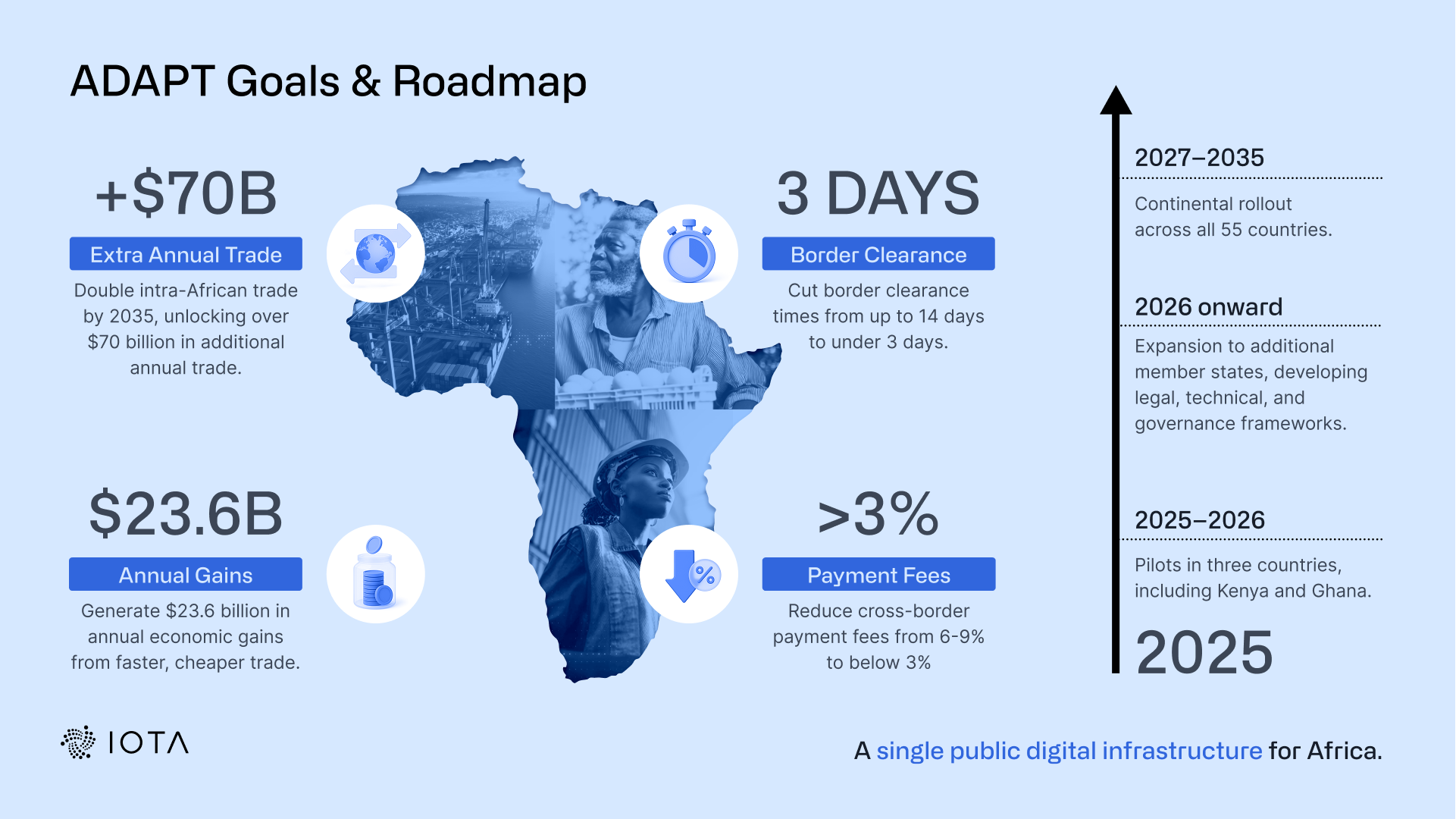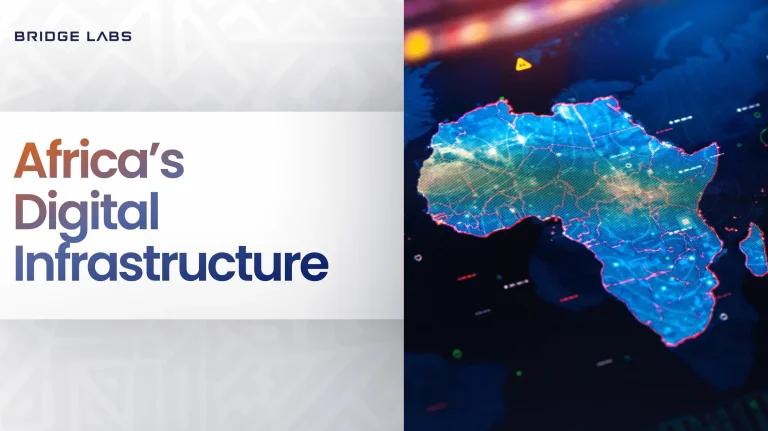The African Continental Free Trade Area (AfCFTA) Secretariat has unveiled an ambitious digital overhaul of the continent’s trading systems, launching the Africa Digital Access and Public Infrastructure for Trade (ADAPT) programme in partnership with the Tony Blair Institute, the IOTA Foundation and the World Economic Forum.
The initiative, announced this week, aims to create a shared digital public infrastructure to replace the fragmented, paper-heavy processes that have long slowed trade across Africa.
Removing barriers that hinder intra-African trade
Global supply chains continue to rely heavily on paperwork, with an estimated four billion trade documents produced daily. A single shipment often requires 30 organisations to exchange around 240 paper copies, contributing to administrative errors and delays. According to the AfCFTA Secretariat, inefficiencies of this kind can drive total trade costs to nearly 100 percent of the value of the goods themselves.
For African traders, the obstacles are even steeper. Payment transaction fees across the continent cost an estimated $25bn each year, while document fraud remains a global $2.5bn problem. These barriers feed into chronic underperformance in intra-African trade, which accounts for only 17 percent of the continent’s commerce—far below levels seen in Europe or Asia.
ADAPT proposes a continental digital backbone
The ADAPT programme seeks to reverse this picture by introducing a unified digital ecosystem built on emerging technologies including distributed ledger technology (DLT) and artificial intelligence. The system will initially use IOTA’s DLT architecture, enabling supply chain actors to verify documents, payments and identities using tamper-proof digital credentials.
Crucially, ADAPT is designed to allow national systems to communicate seamlessly, reducing duplication and enabling border agencies, banks, customs authorities, ports and private players to share trusted information across jurisdictions. The AfCFTA Secretariat says the partners involved encourage additional countries, donors and companies to join the initiative.
AfCFTA Secretary-General Wamkele Mene said the new platform is central to Africa’s goal of building an integrated continental market. Mene noted: ‘This is Africa’s blueprint for the digitisation and modernisation of trade: a system that replaces fragmentation with integration, friction with trust, and inefficiency with scale.’
Pilot projects show dramatic gains
The backbone of ADAPT has already been tested in live pilots in Kenya and Rwanda, according to the IOTA Foundation and partner organisations. In Kenya, traders gained access to fully digitised trade documents, cutting processing times and sharply reducing manual paperwork.
Border officials in Kenya previously had to navigate 13 different systems to retrieve consignment data. The new integrated platform consolidates this into a single interface, eliminating 60 to 70 percent of manual verification tasks. Document retrieval times have fallen from as long as seven hours to about 30 minutes.

Exporters also report meaningful cost savings. Printing and document management expenses have dropped by roughly $400 per month for many, while freight forwarders have reduced overheads thanks to 50 to 60 percent fewer data re-entries.
Huge potential gains by 2035
If implemented effectively across all AfCFTA and African Union member states, ADAPT could transform continental trade flows. Early estimates suggest it may double intra-African trade by 2035, unlock more than $70 bn in new trade value, and generate around $23.6bn in annual economic gains. Border clearance times could fall by half as document verification becomes instant.
The initiative also opens doors to improved digital payments infrastructure. Small and medium-sized enterprises are expected to benefit from access to digital payment tools, including stablecoins and other digital currencies, enabling cheaper and faster transfers. The tokenisation of assets, consignments or individual items could also give businesses new ways to access trade finance.
Next phases and continental rollout
The first countries implementing ADAPT include Kenya and Ghana, with a third rollout under way this year. A continent-wide expansion is set to begin in 2026 once legal, technical and governance frameworks are finalised.
Upcoming features being explored include cross-border digital identity recognition, auditable proofs of custody, tamper-proof digital documentation stored on a distributed ledger, AI-powered compliance checks and asset tokenisation for faster access to capital.
Partners see Africa as a global trade-tech trailblazer
Tony Blair, founder of the Tony Blair Institute, said his organisation would continue to support the programme: ‘We will provide practical support from our teams in over 17 African countries and keep bringing in the best of global technology and finance, to ensure Africa’s single digital market is African in its roots and global in its reach.’
Chido Munyati, the World Economic Forum’s Head of Africa, said ADAPT aligns with broader efforts to modernise trade systems through the Forum’s TradeTech initiative. Munyati said he believes Africa could become a leader in digital value chains if adoption continues at pace.
IOTA Foundation chair Dominik Schiener added that Africa is well-positioned to leapfrog older systems: ‘The success of using distributed ledger technology in pilot projects in Kenya and Rwanda has made it clear that Africa is ready to embrace these changes.


